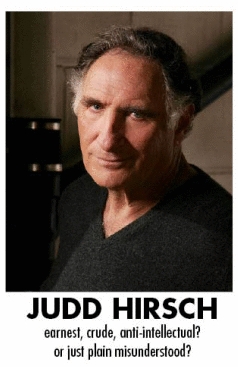 It did not take long for American literary critics to rise to the bait. The real scandal of Adam Kirsch’s comments is not that they revealed a secret bias for insularity on the part of The Adam Kirsch Committee. It is that Adam Kirsch made official what has long been obvious to anyone paying attention: The Adam Kirsch Committee, composed of two members (Kirsch and his ego), has no clue or interest in genre or anything outside of recondite realist literature, no awareness of any writer taking real literary chances, a dismissive interest, at best, with books that challenge conventional notions, and an almost total inability to follow John Updike’s first rule of reviewing. Kirsch should respond not by imploring his editors to have him write more boring and lifeless reviews, but by seceding, once and for all, from the sham that American book reviewing has become.
It did not take long for American literary critics to rise to the bait. The real scandal of Adam Kirsch’s comments is not that they revealed a secret bias for insularity on the part of The Adam Kirsch Committee. It is that Adam Kirsch made official what has long been obvious to anyone paying attention: The Adam Kirsch Committee, composed of two members (Kirsch and his ego), has no clue or interest in genre or anything outside of recondite realist literature, no awareness of any writer taking real literary chances, a dismissive interest, at best, with books that challenge conventional notions, and an almost total inability to follow John Updike’s first rule of reviewing. Kirsch should respond not by imploring his editors to have him write more boring and lifeless reviews, but by seceding, once and for all, from the sham that American book reviewing has become.
When Kirsch accuses the American literary community of being raw and backward, and the Nobel committee from selecting writers who “fit all too comfortably on junior-high-school reading lists,” he is failing to live up to an inclusive enlightenment that goes back practically to the Revolutionary War. It was more than 200 years ago that Sydney Smith, the English wit (also a reverend), famously wrote in Elementary Sketches of Moral Philosophy: “Have the courage to be ignorant of a great number of things, in order to avoid the calamity of being ignorant of everything.” Not only does Mr. Kirsch lack that courage, but he fails to cite specifics on the fallacies of these “almost folk writers.” And he uses remarkable generalizations to suggest that these writers reflected the image of America that Europe wanted to see. On the contrary, Paris welcomed such radical American writers as Ernest Hemingway, Henry Miller, and James Baldwin into its fold. In 2001, Philip Roth won the Czech-based Franz Kafka Prize. Richard Powers, Donna Tartt, and Roth have all won the UK-based WH Smith Literary Award in the last decade. Indeed, the Right Livelihood Award — the so-called “alternative Nobel” — handed out an award to an American this year. To judge by these developments, you would think that Kirsch simply hasn’t been paying attention to the last ten years of American-European cultural relations.
But that, of course, is exactly the problem with Adam Kirsch. As long as the Nobel mess could still be mined for a straw man — as long as a sour critic like Kirsch had to leave the New York Sun for the online pastures of Slate in order to become a legend in his own mind — it was easy to make these generalizations and fall into the same trap as Horace Engdahl. And now that the Nobel Literature Prize has been handed out to Jean-Marie Gustave Le Clezio, and some Americans are scrambling to find out who he is, Kirsch can perform his happy little dance of how he knew this French writer all along.
I fully confess that I have not read a single word that Jean-Marie Gustave Le Clezio has written. I am ignorant, and am happy to fill in the gap. And I confess my ignorance here to avoid Kirsch’s greater calamity and his almost total absence of courage.